What do the most recurrent terms in the EU Commission president’s annual speech at the European Parliament say about the present and future of the Union?
It has become a tradition in the EU, inspired by the US president’s annual address to Congress. On Wednesday morning (12 September), the European Commission president Jean-Claude Juncker delivered the State of the European Union speech, also known as SOTEU, at the European Parliament in Strasbourg.
It was the fourth, and probably the last, time that Juncker addressed the MEPs. In May next year, a new parliament will be elected and in September it is expected to be busy with approving the new college of commissioners appointed by member states.
This year’s SOTEU was therefore special, and for Juncker an opportunity to review his achievements and set out a vision for the EU he will leave behind at the end of his term.
Amid renewed concerns over the rise of far-right and anti-EU forces in Europe, Juncker’s speech was meant to be a political answer to citizens’ concerns and his institution’s positions on issues debated by EU leaders – on migration, the economy or social policies, as well as on the place of the bloc in the world.
What did Juncker say, and what did he emphasise? As we did last year, we looked at the words Juncker chose, and which ones he used the most:
And here as a wordcloud:
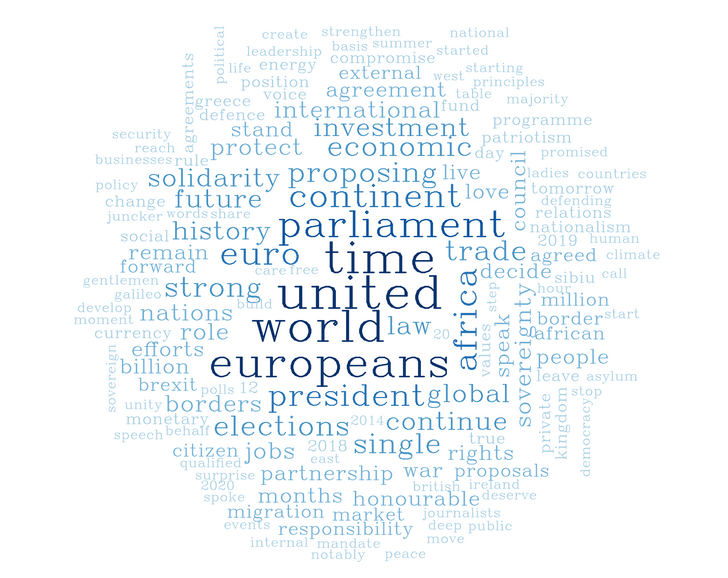
The speech was followed by a plenary debate with MEPs, kick starting the dialogue between the parliament and the Council of the EU for preparing the commission’s work programme for the following year.
Although they may seem dull, especially to people outside the EU bubble, SOTEU speeches are one of the very few occasions in which the commission’s president publicly speaks about what he and his fellow commissioners have done so far, and shares his vision for the coming months.
It’s the closest thing the EU has to a general policy speech by a national chief of government. Therefore, it is interesting to have a closer look at its language and the words that are used, as they speak for which concepts and issues have been marking a specific period, and what the EU is – and will be – focusing on.
The ten most frequently used words in each SOTEU
The figure refers to the most frequent words in all SOTEU speeches pronounced by José Manuel Barroso and Jean-Claude Juncker, so to say the keywords that have dominated the EU in the last decade. It shows the number of times that each of these words was pronounced in each of the speeches. The colour of the circle reflects these data, with red reflecting more mentions.
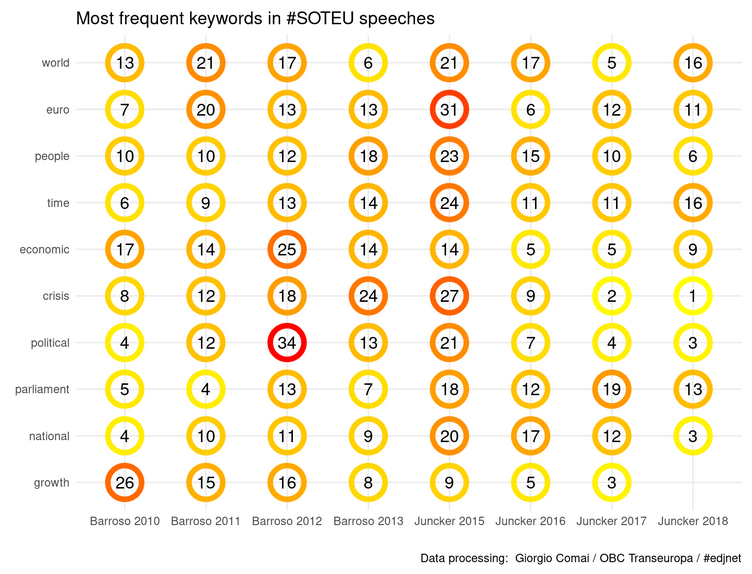
Comparing speeches by all words frequency
The following wordcloud compares the relative frequency of keywords across Juncker’s four speeches (recurring terms have been excluded), showing the words that are most frequent in each of the speeches and are at the same time less frequently found in other speeches.
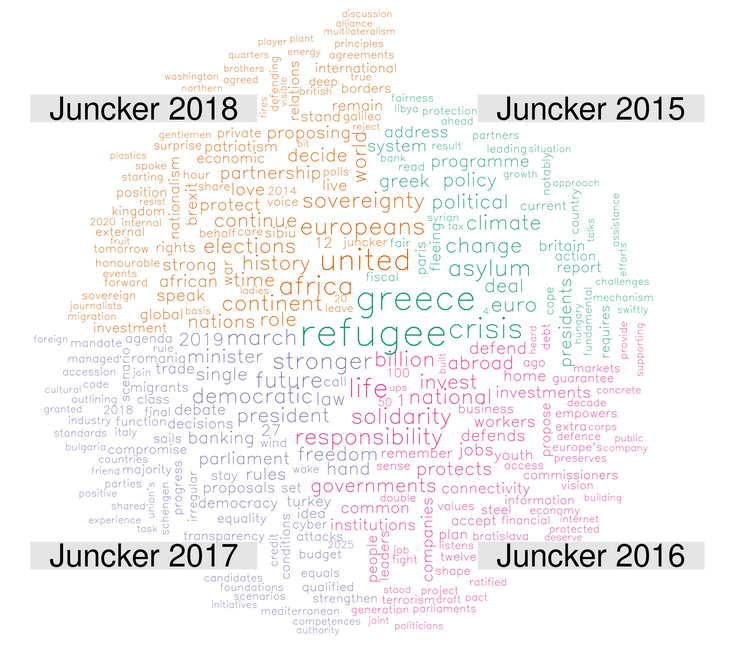
Comparing speeches by specific words frequency
This chart shows the number of times a few keywords were pronounced during each of Barroso’s and Juncker’s speeches. The colour of the circle reflects these data, with red reflecting more mentions. Here, we chose to monitor some of the most salient words, not the most used.
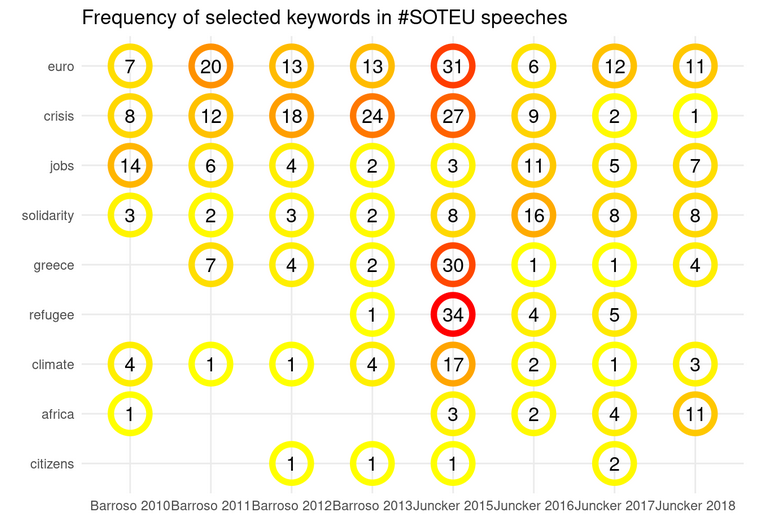
Comparing speeches by sentiment
Finally, these wordclouds show the balance between positively and negatively connoted words used in SOTEU speeches. The following cloud refers to the 2018 Juncker SOTEU speech, while the one below it includes all the SOTEU speeches made by Barroso and Juncker: the word “crisis” has dominated this decade, but it is does no longer come out on top.
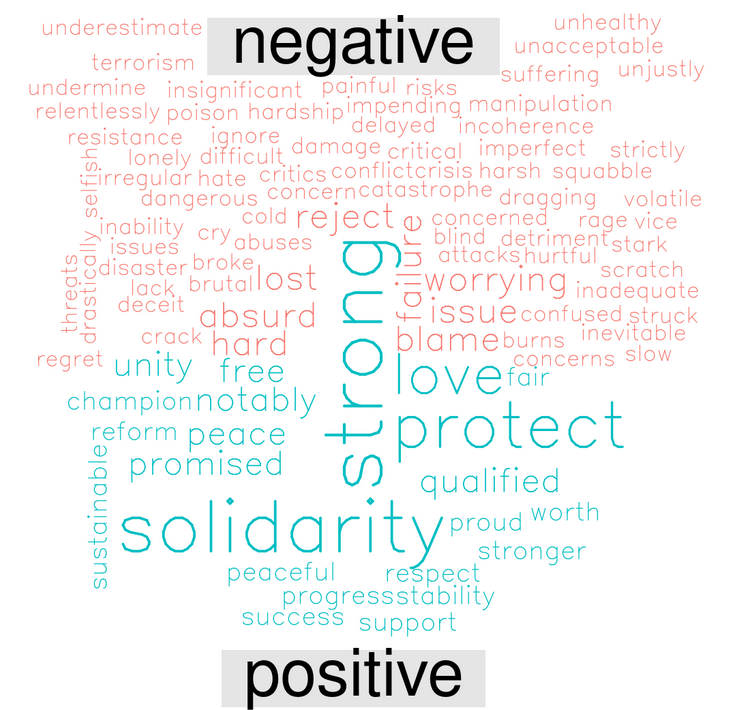
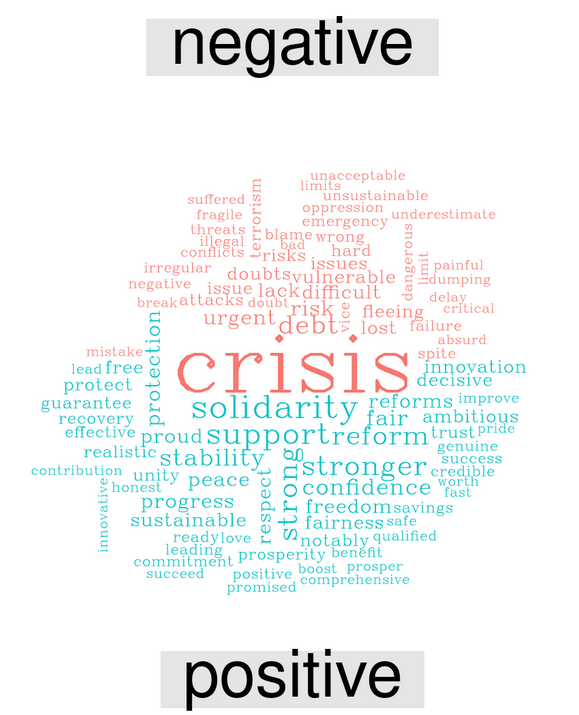
Factual or translation error? Tell us.

